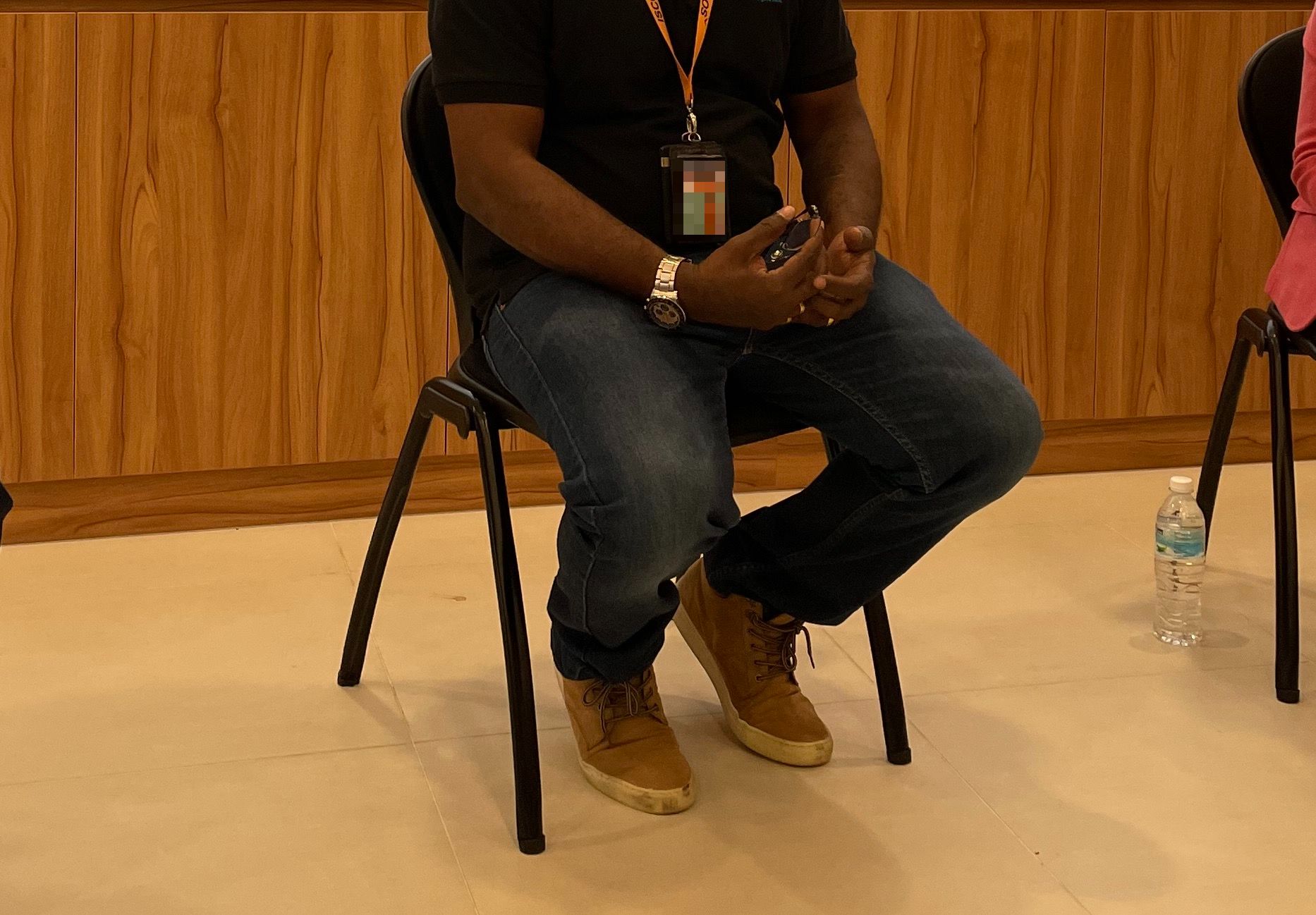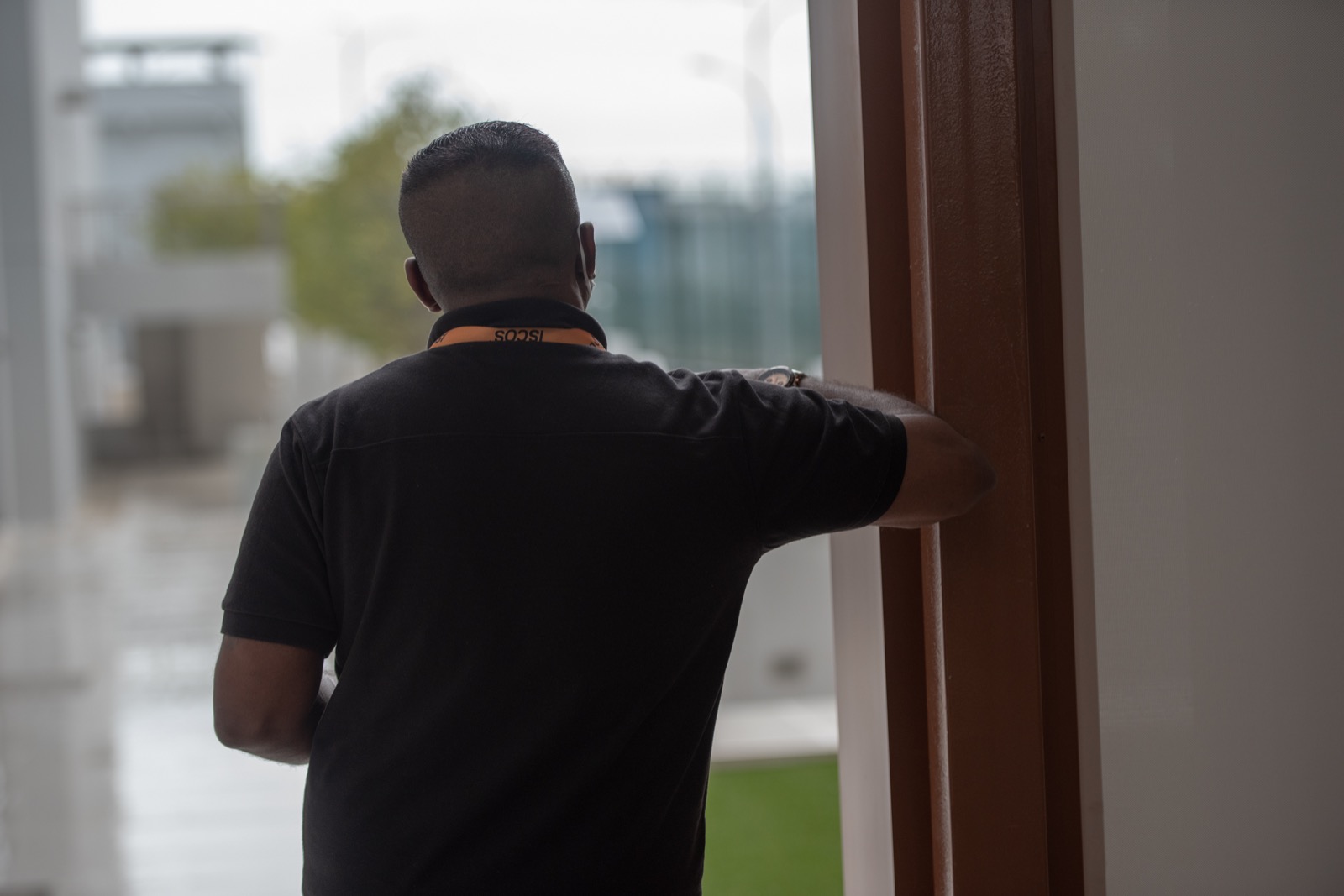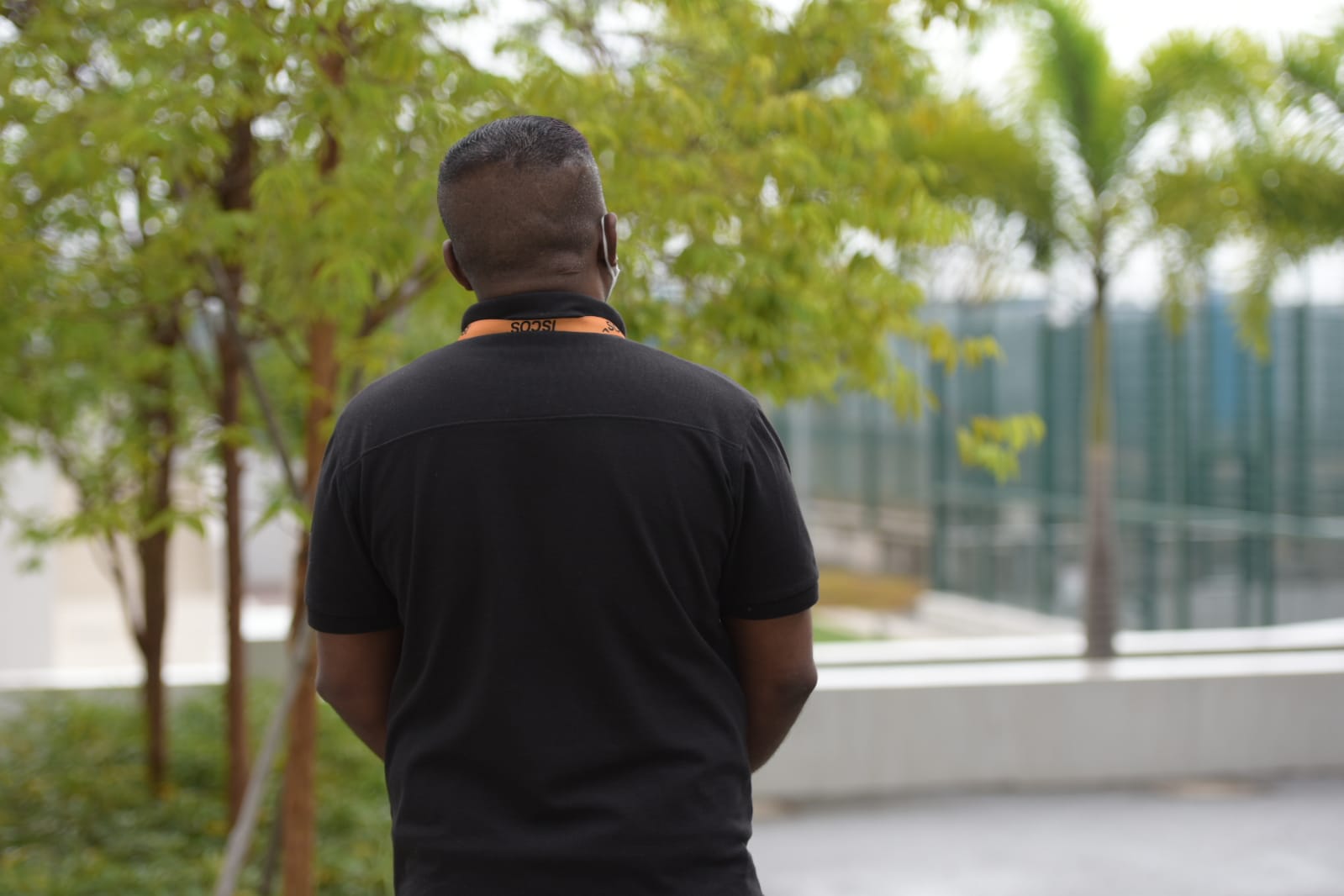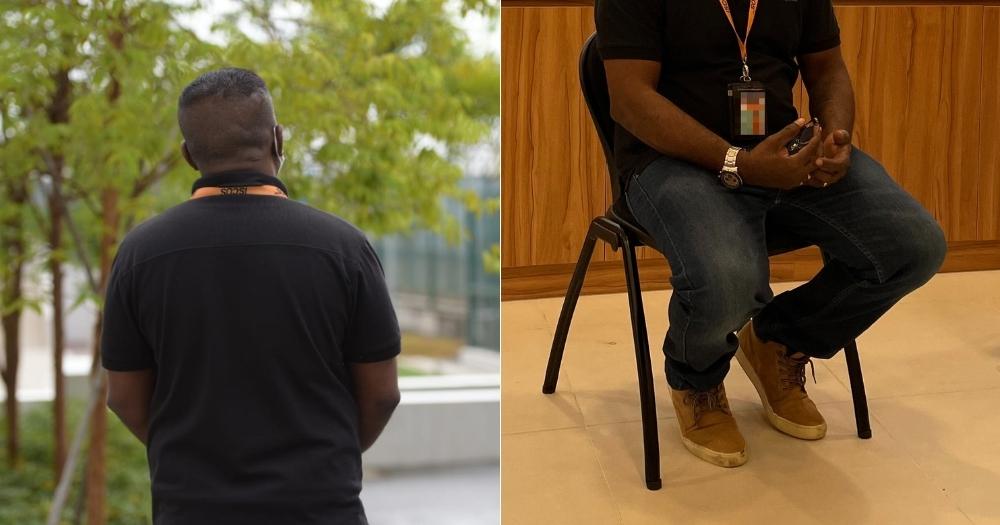Follow us on Telegram for the latest updates: https://t.me/mothershipsg
"Gang is full of bullsh*t." 49-year-old ex-offender John (not his real name) asserted to reporters on Feb. 9.
His statement, while forceful, was not shocking.
John, who had a reputation as a prolific gang member, severed ties with gangs once and for all in 2009 in what was his final stint behind bars.
John's son: "I have no one"
John's decision to renounce all of his gang affiliations came after a prison family visit in 2007.
His then-10-year-old son asked: "Dad, when are you going to come out?"
John was at that time serving his eight-year corrective training sentence for drug- and violence-related offences.
Corrective training, which is separate from prison, is reserved for repeat offenders.
It is a more severe form of punishment where offenders will have zero chance at early release or remission.
Son's question motivated him to change
John recounted being "really dumbfounded" by his son's question at that time, so much so that he had to ask his son to explain the reason for asking it.
His son responded and said: "Most children have their parents to send them to school. But, I have no one."
This statement, John said, "really touched" him, and ultimately, became the impetus for his desire to change for the better.
"I never thought it would cost my whole life"
Having come from a broken family where his parents were separated, John recounted how he was not well taken care of as a child.
Lacking familial support, he made up for it by hanging out with a few close "neighbourhood friends" whom he "mingles around" with instead.
It was during one of these instances when John and his friends ran into some trouble and a fight ensued.
He approached one of his friend's brothers to seek assistance, and was told that he needed to be a part of a gang to be given "protection".
This was the moment when the then-14-year-old John found himself a part of a gang.
Looking back at his decision, John told reporters that he never knew it would result in him wasting close to 16 years of his life behind bars: "I never thought it would cost my whole life."
 Image by Fiona Tan.
Image by Fiona Tan.
Gang Renunciation Programme launched in 2009
However, John remained a secret society member whilst behind bars in 2007.
Even till this day, such occurrences of inmates still being part of a gang are not unheard of.
The Singapore Prison Service (SPS) noted that around 24 per cent of the 7,572 inmates that entered prison in 2021 still retained their affiliations with gangs on the outside.
After his son's visit, John was determined to start afresh and turn over a new leaf.
While he had expressed to "prison intelligence" that he did not want to be a gangster anymore, the prison did not have a gang renunciation programme at that time.
John said: “I already told them I don’t want to be in the gang. This is my life. I need to make this decision.”
 Image courtesy of Singapore Prison Service.
Image courtesy of Singapore Prison Service.
Formally sever gang ties
It was not until 2009 when SPS launched the Gang Renunciation Programme that John formally severed all of his remaining affiliations to his gang.
He did so while standing in front of his fellow inmates, some of whom were members from other gangs and even from the same gang as him, and declared himself gang-free during one of the prison's formal gang renunciation ceremony.
These days, family members, counsellors and prison staff of inmates affiliated with secret societies are also invited to be witnesses in their gang renunciation ceremony.
Inmates who renounce gang affiliations in front of an audience are "making a very powerful statement", said Chin Soon Theen, superintendent of prisons and senior assistant director in SPS’ Operations Division.
SPS said a total 1,463 inmates have taken part in the Gang Renunciation Programme since its launch in 2009.
"I was sweaty"
Recalling the exact moment when he renounced his gang affiliations in front of his inmates, John said he was "really sweaty".
This was because of the pushback that he had encountered within prison from fellow gang-affiliated inmates prior to his renunciation, especially since he was a rather prolific gang member with a high rank.
He said: "They tried to suppress me and stop me. They said, ‘Don't do it here. You know [that] as a gangster, you need to go...'"
Inmates who renounce their gangs, or are planning to do so, may face stigmatisation and even potentially run into trouble with other inmates, said Chin.
However, John was adamant and "stood firm" despite how it was not an easy decision to make.
He said: "I need to cut off everything. Because renunciation is not only renouncing secret societies, it’s also renouncing all my bad activities.”
He added that he would still be behind bars had he not made the decision to renounce his association to the gang.
 Image courtesy of Singapore Prison Service.
Image courtesy of Singapore Prison Service.
Prison provides support
John was also confident in his decision as he had the support of SPS.
SPS would keep a lookout for potential repercussions for inmates who are in prison after their renunciation ceremony.
They would also check in on these inmates regularly.
As a result, John said other inmates couldn't "do anything" to him.
SPS said inmates who feel pressured by their peers can approach any prison officer for counselling sessions or further support.
To help them further disassociate themselves from gangs, renouncers can also have their tattoos removed for free.
Support post release
Since his release in 2014, John said other gang members who see him outside of prison "just move on", as they know he has since reformed.
He now holds two roles with the Industrial and Services Co-Operative Society (ISCOS): Outreach Coordinator and Titan Volunteer.
In collaboration with SPS, ISCOS has a Gang Alternative Programme (GAP), which is a support group specifically for ex-offenders who have renounced their gang affiliation when they are outside of prison.
John said this support group has "really helped him": "Whatever issues I am facing outside, I can't speak [about] it with an ordinary person."
Through this support group, SPS hopes to provide continuous support to renouncers, and hopefully "enhance their resolve to resist joining gangs subsequently”, Chin said.
John said he hopes to be a "role model" to inmates who are considering renunciation but are fearful of the potential consequences post-release, by reassuring and showing them that nothing can happen to them.
He added: "You can overcome it, because you know why? I already overcome it. I am standing on both feet and I am still walking."
Related stories
Follow and listen to our podcast here
Top image by Fiona Tan and courtesy of Singapore Prison Service
If you like what you read, follow us on Facebook, Instagram, Twitter and Telegram to get the latest updates.
